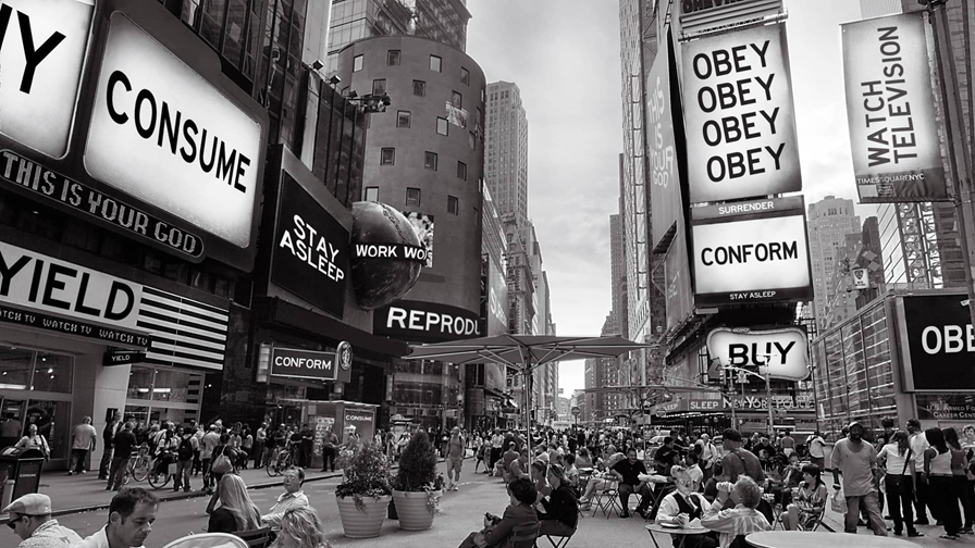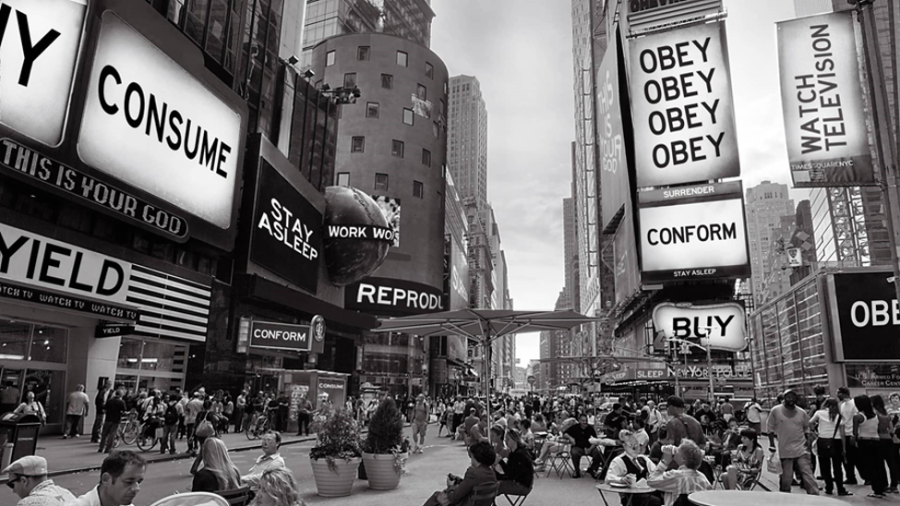The term “Culture Industry” brought by the German critical theorists Theodor Adorno and Max Horkheimer refers to the commodification and standardization of cultural products like music, film, literature, and other artistic products within a capitalist society. The concept is central to their critical analysis of mass culture and its impact on society.
Adorno and Horkheimer argued that cultural productions are driven by profit motives rather than artistic or intellectual considerations. And says that cultural goods were mass-produced, homogenized, and designed for mass consumption, leading to a loss of individuality and critical engagement.


In a word, everything we see on screens looks, sounds, and feels the same. Thus the general public like you and me having less demand on uniqueness and criticizing less on these artworks.
It is still very much true, let’s put movies as the subject to discuss. The giant corporations dominating the insdustry from some ponit have been making movies with a certain pattern and they’ve all worked just fine throughout the years. Gradually narrowing people’s sight onto dots on a spectrum, some audiences selections process are limited from “Should I watch the romantic one or that horror one?” to “Oh let’s go for that one where ‘The Rock’ is wearing that dirty shirt in some jungle again.”
Fair to say that the similar plots of stories, similar themes, and abusing sequels or remakes of the existing famous movies are extinguishing creativity in the industry.
I’m sure audiences nowadays can predict the story when watching the movie mid-way, the villain’s will “almost win” but eventually lose to the main character with some reason that barely makes sense.
I don’t know about other people but I’m sick of hearing the word “family” in movies or other streaming productions. It’s so bad that I’d stop watching them the second I hear something like “because we’re a family”.


And more, we’re having a new Indiana Jones movie starring an 80-year-old Harrison Ford, a new Star Wars movie even when the new trilogy was heavily criticized by the audience.
The reason of the leading enterprises would still go over and over with the same stuffs is that it’s still profitable as the mass audiences would still buy a ticket on these mass cultural productions.
But these remakes of blockbusters and sequels seems having a massive flop in recent years, as quite the portion of people are are getting bored of the endless repetition. People nowadays have gain their individuality back by having more access than before to contents they’d prefer to watch, uniqueness were back on the table as creative contents like “Squid Game”, “The Boys” and etcetera.

In summary, the Culture Industry concept by Adorno and Horkheimer critiques the industrialization and commercialization of culture in capitalist societies, highlighting its impact on individual autonomy, critical thinking, and the potential for genuine artistic expression.
It is a good sign the genral public realizing the importance of their individuality and critical thinking, it means not only such Culture Industry’s grip on the people is turning loose, but also that people are less likely being controlled or manipulated by messages through mass media, as they can critically assess and understand the information presented to them.
References:
Media and Cultural Studies: Keyworks – Durham, Meenakshi Gigi – https://www.vlebooks.com/Product/Index/22528?page=0&startBookmarkId=-1
Hollywood is stuck making the same lame movies over and over again – https://nypost.com/2023/04/10/hollywood-is-making-the-same-lame-movies-over-and-over-again/


I think you explain the concept of “cultural industry” very thoroughly! I can see that in the film industry, companies tend to value profit more than artistic originality. So what the audience sees is a predictable plot. At the same time, I can understand your perception of specific movie plots, because everyone has specific preferences, and the current creative restrictions of streaming are homogenizing those preferences.
The cultural industry is controlled by capital, which is profit-driven. In this case, in order to pursue greater profits, capital must go to please the public, that is, pandering, which inevitably leads to the monotony of film and television.